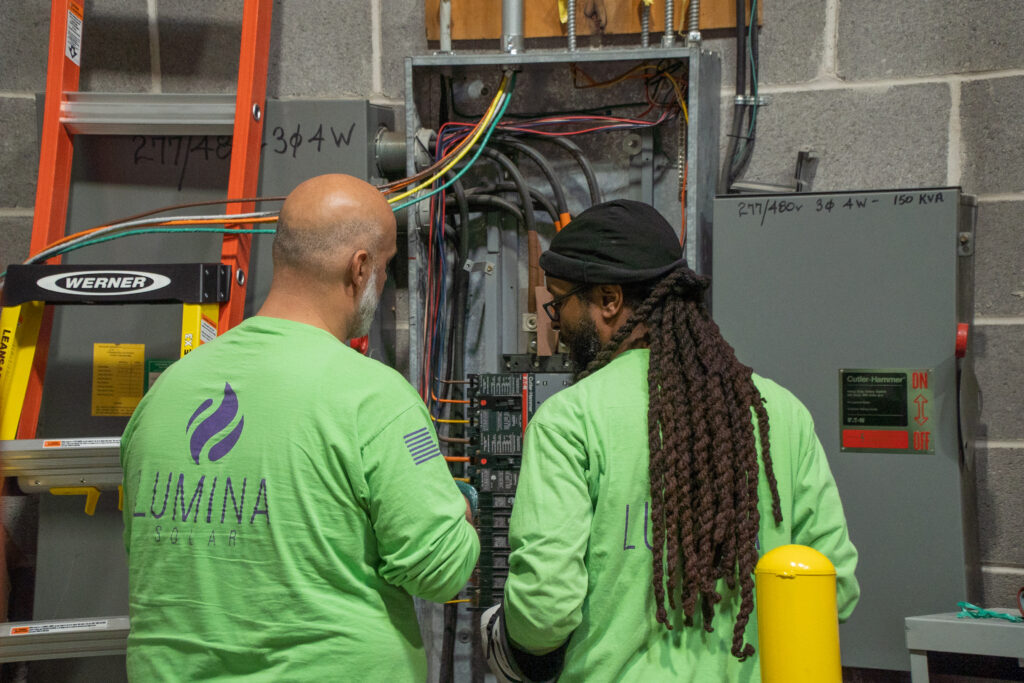New legislative changes in Washington have can significant impacts for residential and commercial solar projects. We break down all of the changes to keep you informed.
Recent legislative changes brought by the federal government have a big impact on the solar industry, including solar incentives. Check out our FAQ below to learn more.
The “One Big Beautiful Bill Act” is recent federal legislation that changes the way solar tax credits work. Most notably, it ends the Section 25D residential solar tax credit at the end of 2025 and introduces new timelines and requirements for tax credits under Sections 45Y (Clean Electricity Production Credit) and 48E (Clean Electricity Investment Credit).
The current 30% Section 25D tax credit for residential solar will remain in place for systems that reach mechanical completion on or before December 31, 2025. After that date, the 25D credit will no longer be available.
To qualify for the current 30% Section 25D credit, your system must reach mechanical completion (physically installed) by December 31, 2025. Signing a contract in 2025 does not guarantee eligibility. Timely installation is key. The bill actually uses the term “expenditures” however according to IRS guidelines, an expenditure is considered to have been made when the service or installation has been completed.
After 2025, residential customers will no longer be able to use the Section 25D credit. Some projects may qualify under Section 48E (Clean Electricity Investment Credit), but this credit has different eligibility rules, timelines, and compliance requirements.
Section 45Y (Clean Electricity Production Credit): Applies to facilities that generate clean electricity and sell it to the grid. This is primarily geared toward large-scale or utility projects, not standard residential installs.
Section 48E (Clean Electricity Investment Credit): Replaces the current investment tax credit structure starting in 2026. Some commercial, nonprofit, and certain qualifying community solar projects may be eligible.
Yes, with Lumina. While the federal 30% tax credit ends in 2025, Lumina is offering a Cash Rebate option to qualified customers who sign their contract by September 30, 2025 and are scheduled to install in 2026. This rebate helps keep solar financially attractive in 2025 even after the federal credit expires.
The Lumina Cash Rebate is a limited-time offer designed to help customers who miss the federal deadline still save big. Eligible customers will receive a cash rebate paid by Lumina 60 days after their installation is completed. Details and qualifications will vary, so reach out early to secure your spot.
Yes! Whether you receive the federal 30% tax credit, Lumina’s Cash Rebate offer, or choose a leasing option, it is a great time to go solar! A lot of things in the solar industry have changed, but the benefits of solar are still the same.
Yes. State, utility, and local incentives will remain in place depending on your location. These vary widely and can help offset costs even after the federal credit changes.Book a consultation with Lumina and we can help identify all any incentives available to you. Check out our incentives page to learn more about state and local incentives throughout our Mid Atlantic service area.
Lumina is prioritizing 2025 installations to ensure customers can meet the deadline and claim the Section 25D credit. We recommend reaching out to learn more about your options with Lumina to maximize your investment with our rebate offer.
While the bill doesn’t raise installation prices, losing the 30% tax credit, or Lumina’s cash rebate, in 2026 means homeowners may have an increased net cost. Acting in 2025 ensures you lock in the best savings and get the most value from your solar investment before the opportunity slips away.
Schedule your free consultation to speak with a solar professional.
Lumina is here to help make the solar process simple. We believe it’s imperative to give you a transparent look at the solar journey, including all legislative updates that may have an impact on going solar. Have more questions? Reach out today to speak to a solar expert.
